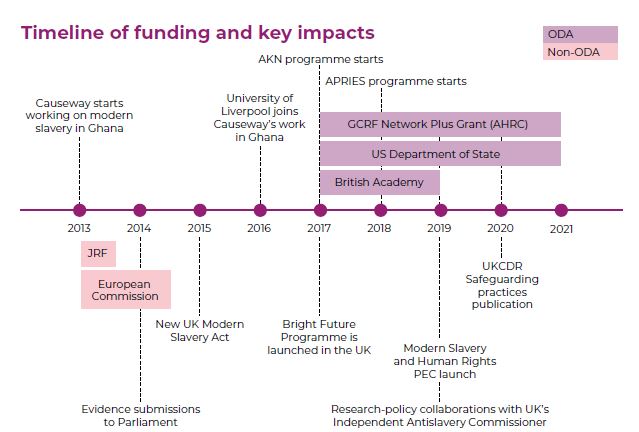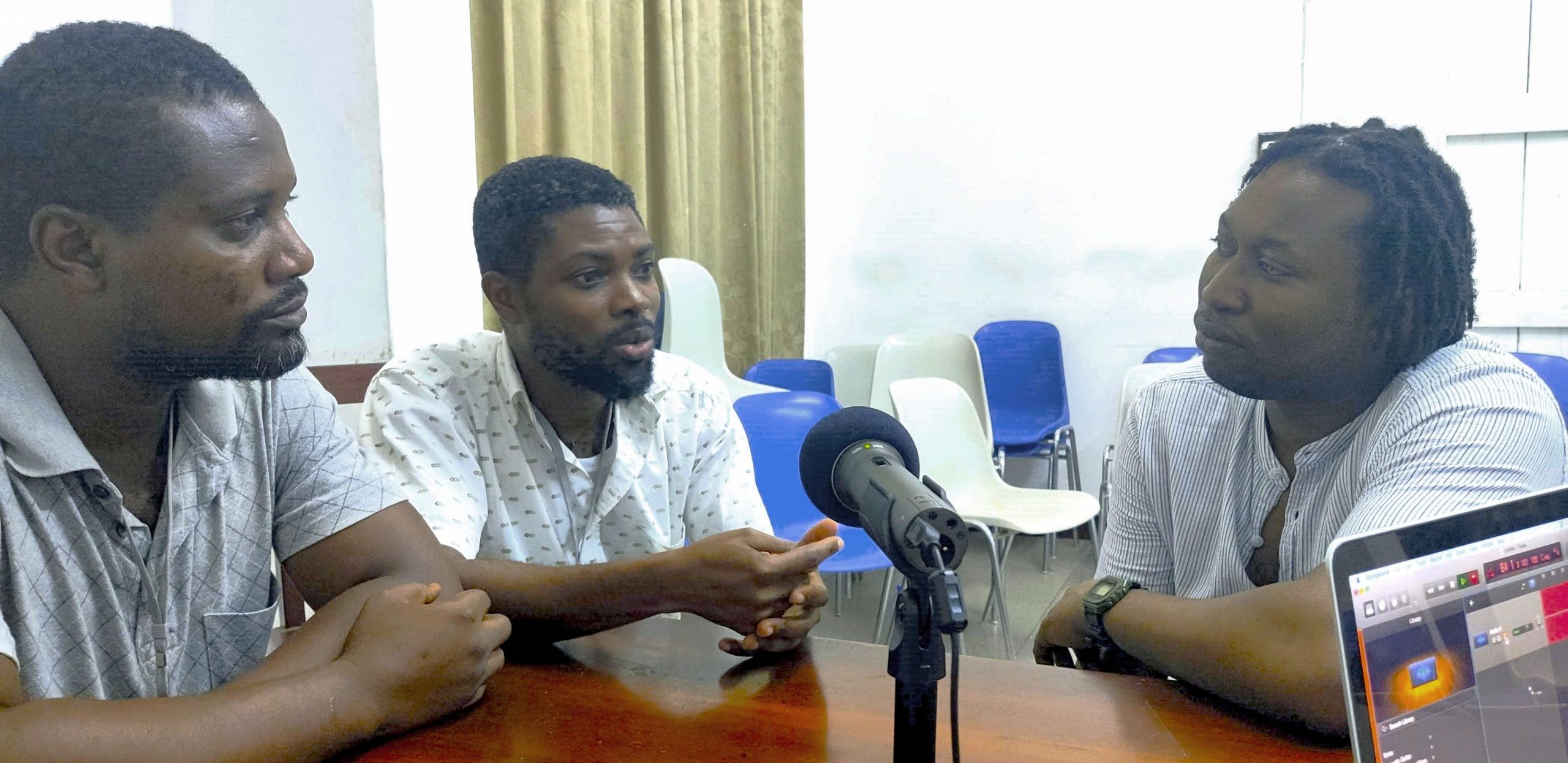How creative community projects shaped policy and practice in Africa and the UK
| Leading University | University of Liverpool |
| Location of impact | Ghana, Guinea, Kenya, Mali, Niger, Senegal, Sierra Leone, Uganda, and UK |
| Thematic focus | Politics and International Studies |
| Funders | In the UK: Arts and Humanities Research Council (AHRC), British Academy, and Joseph Rowntree Foundation (JRF). In the USA: Department of State’s Office to Monitor and Combat Trafficking in Persons. In Europe: European Commission |
| Partners | In Africa: AKN (including 32+ partners between community enterprises, universities, faith-based organisations, and charities), APRIES (a research collaborative). In India: George Institute for Global Health. In the UK: Bright Future, Causeway (former City Hearts), the Co-operative Group (Co-op), Federation of Small Businesses, International Slavery Museum, Modern Slavery and Human Rights Policy and Evidence Centre (PEC), the UK Collaborative on Development Research (UKCDR). In the USA: The Center on Human Trafficking Research & Outreach (CenHTRO) at the University of Georgia. |
Case study summary
Arts-based community projects have helped raise awareness of and provide support to survivors of modern slavery. Researchers from the University of Liverpool collaborated with individuals who have experienced modern slavery, as well as with businesses, charities, and academics to explore different approaches for addressing causes and effects of modern slavery. This research enabled the creation of the Antislavery Knowledge Network (AKN) and the African Programming and Research Initiative to End Slavery (APRIES), two initiatives that have delivered sociocultural impact across multiple African countries and India. In the UK, the research helped build better support services for survivors (shelter, advice, healthcare). By facilitating survivors’ socioeconomic re-integration through stable employment, it also boosted interest in the issue and informed government policies.
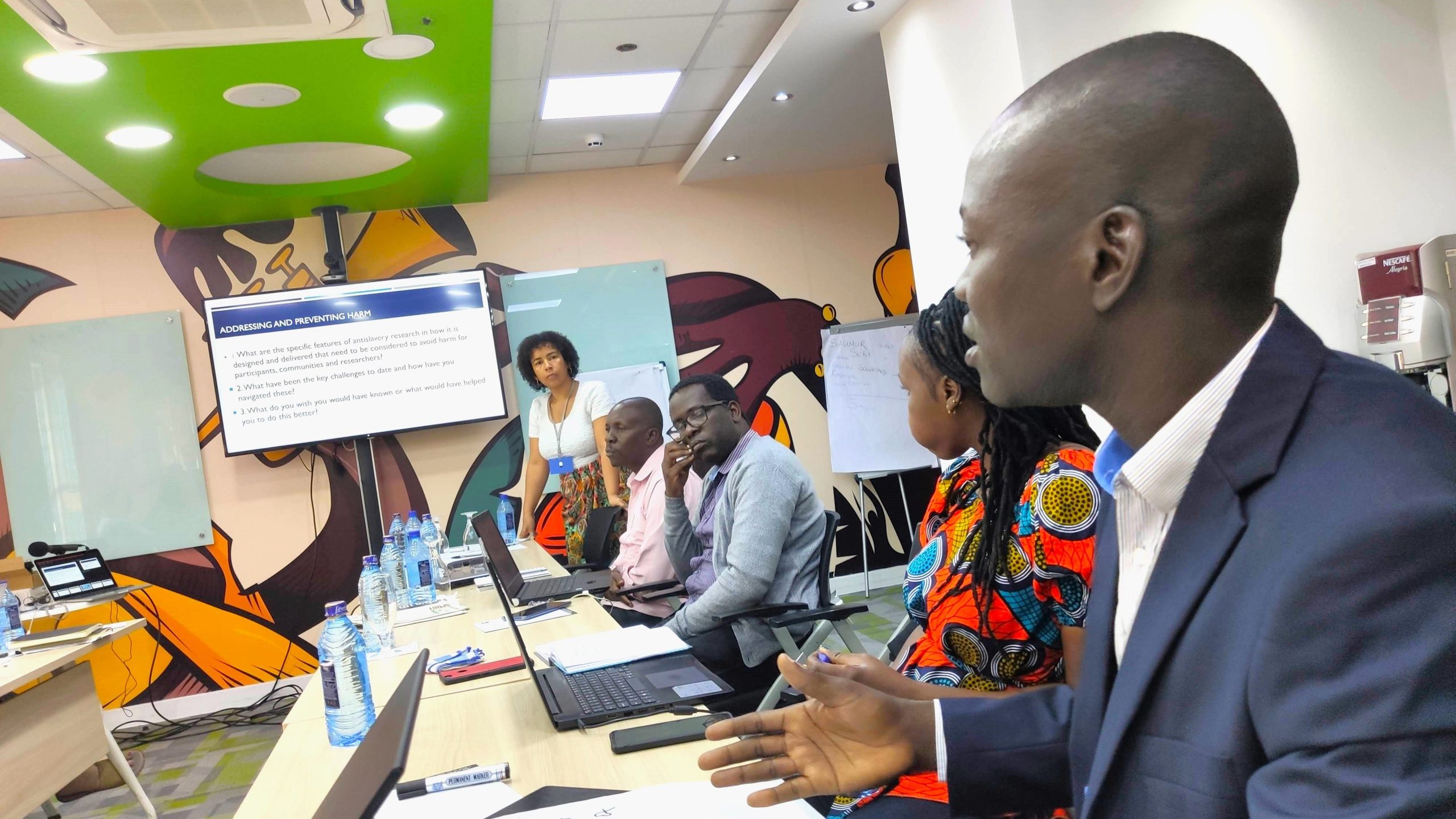
Primary benefits in African countries
Raising public awareness and empowering survivors
From 2017, the UK-Africa AKN team conducted 14 inter- and transdisciplinary projects involving 2000+ participants in eight African countries. These projects raised awareness about modern slavery through arts-based community initiatives (artwork, podcasts and performances) which empowered local stakeholders. In Kenya, Uganda, and Niger, former child soldiers, marginalised slave descendants, and other survivors co-led support services aimed at tackling discrimination and fostering community cohesion. Their participation also contributed to context-sensitive strategies against modern slavery such as creative arts-based therapies and improved design of care facilities for survivor healing.
Guiding future local policy
In Ghana, Causeway practitioners, University of Liverpool researchers, and local organisations collaborated through the AKN initiativeto support vulnerable families (those at risk of forced labour, sex trafficking, among other risks) to understand and prevent modern slavery. Research findings subsequently informed guidelines for local policymakers in West Africa.
Providing insight to external programmes
Insights from lived experience and locally-led solutions developed by AKN shaped APRIES, a US-funded programme created in 2018 to tackle child trafficking in West Africa. In collaboration with local research hubs, APRIES improved data on sex trafficking in Senegal and child trafficking and labour in Guinea and Sierra Leone, identifying policy gaps and providing intervention recommendations.
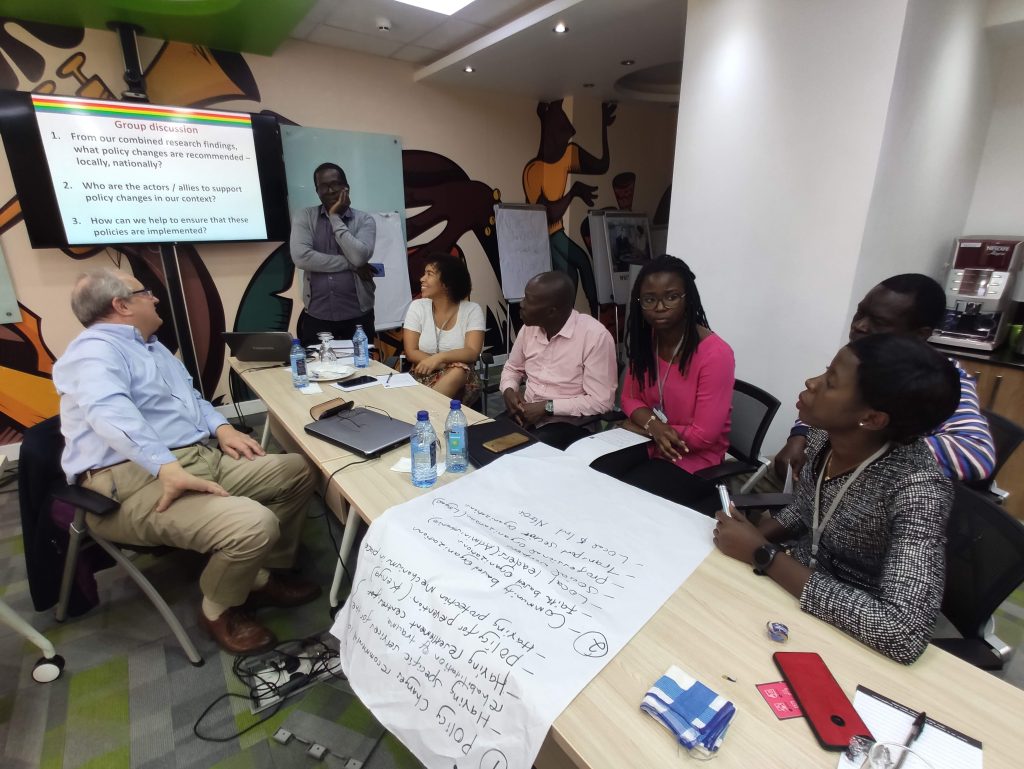
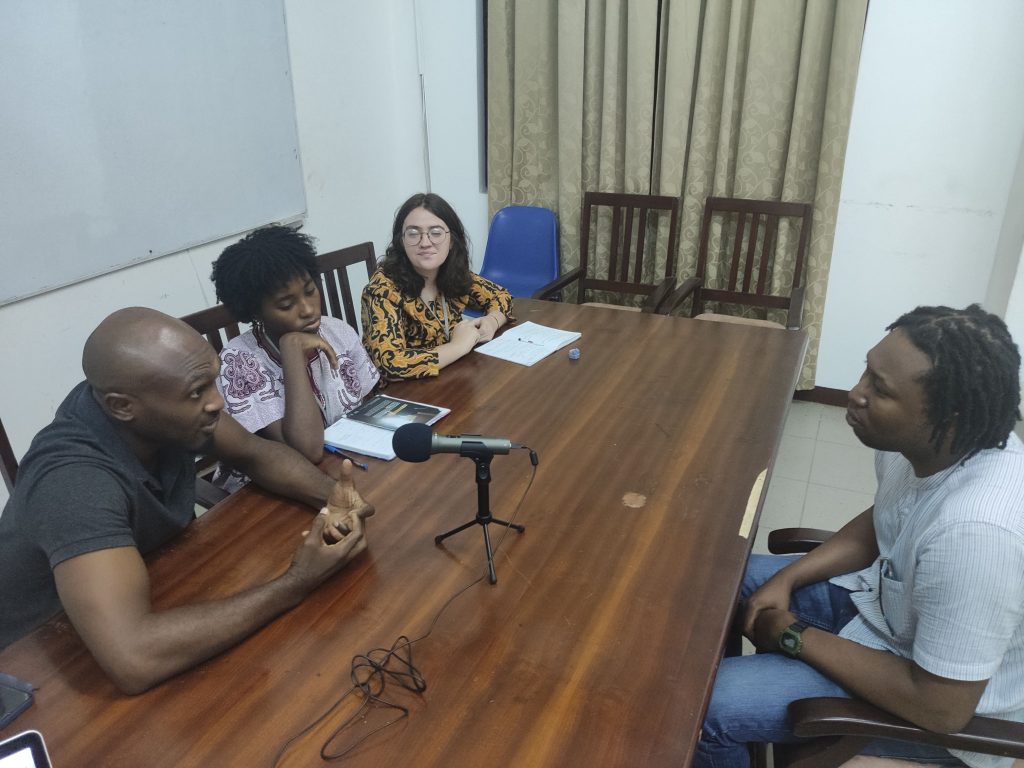
Secondary benefits for the UK and globally
Influence on legislation and policy
Research on regulation and enforcement tackling forced labour contributed to strengthening UK policy on the issue. It informed the priorities of the Independent Antislavery Commissioner and helped the Gangsmasters and Labour Abuse Authority gain an economy-wide remit to protect workers and prosecute exploiters. Submissions of evidence to Parliament prompted the incorporation of business requirements for addressing modern slavery in supply chains within the Modern Slavery Act of 2015.
Creating employment opportunities
Successes of AKN projects and the value of partnerships between businesses and charities led Co-op and Causeway to join forces to create the Bright Future Programme in 2017. Thanks to an evidence-based approach centred on survivors’ real-life experiences, the programme has provided jobs and improved long-term support for modern slavery survivors. It later expanded across 21 businesses and 28 charities and contributed to 100+ referrals, 59 placements, and 34 permanent jobs.
Informing best practice guidance
Building on research from AKN and APRIES, and in collaboration with UKCDR, the research team developed safeguarding guidelines for international development research which informed UK funders’ institutional practices (UKRI, DHSC, FCDO).
Global and local partnerships
The creation of new partnerships and projects involving researchers and practitioners, both within and outside the UK, helped develop a vibrant research community, including through the formation of the UK’s Modern Slavery Research Consortium linking 200+ diverse groups and individuals.
How secondary benefits unfolded
- University of Liverpool researchers prioritised building equitable transdisciplinary partnerships (i.e., working with practitioners, consultants, academics, and survivors with mutual respect and trust). This enhanced research impact in African countries. Lessons from this approach were pivotal for the development of the Bright Future programme, which successfully fostered effective partnerships with UK businesses and charities.
- Insights from the engagement with survivors and vulnerable communities in Africa enabled Causeway to promote ways of addressing modern slavery in the UK’s business supply chain. For example, Causeway highlighted the value of lived experience and encouraged firms to employ survivors as consultants for risk mitigation in recruitment processes.
- Similarly, lessons from AKN’s interdisciplinary research (spanning 18 disciplines including politics, history, communication, and drama) helped the UK improve engagement with survivors, identify legislative gaps, establish safeguarding guidelines, and shape research agendas led by the Modern Slavery and Human Rights PEC.
